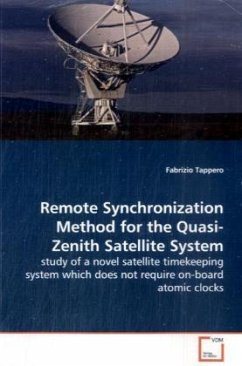This book presents a novel satellite timekeeping
system which does not require on-board atomic clocks
as used by existing navigation satellite systems such
as GPS, GLONASS or the GALILEO system. This
concept is differentiated by the employment of a
synchronization framework combined with lightweight
steerable on-board clocks which act as transponders
re-broadcasting the precise time remotely provided by
the time synchronization network located on the
ground. This allows the system to operate optimally
when satellites are in direct contact with the ground
station, making it suitable for a system like the
Japanese Quasi-Zenith Satellite System, QZSS. Low
satellite mass and low satellite manufacturing and
launch cost are significant advantages of this novel
system. Two possible implementations of the time
synchronization network for QZSS are presented.
Additionally, the problem of satellite communication
interruption is analysed and a solution is presented.
Finally a positioning and timing quality analysis,
aimed to provide understanding of the actual timing
quality requirements for QZSS, is presented.
system which does not require on-board atomic clocks
as used by existing navigation satellite systems such
as GPS, GLONASS or the GALILEO system. This
concept is differentiated by the employment of a
synchronization framework combined with lightweight
steerable on-board clocks which act as transponders
re-broadcasting the precise time remotely provided by
the time synchronization network located on the
ground. This allows the system to operate optimally
when satellites are in direct contact with the ground
station, making it suitable for a system like the
Japanese Quasi-Zenith Satellite System, QZSS. Low
satellite mass and low satellite manufacturing and
launch cost are significant advantages of this novel
system. Two possible implementations of the time
synchronization network for QZSS are presented.
Additionally, the problem of satellite communication
interruption is analysed and a solution is presented.
Finally a positioning and timing quality analysis,
aimed to provide understanding of the actual timing
quality requirements for QZSS, is presented.







